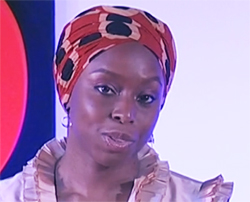Last time I was querying context, and ended by commenting that it can be interesting to see how writers respond to the events happening around them. In a new series of programmes on the BBC, History of Now, Simon Schama argues that we can often only make sense of history through art, and that art is often the most compelling form of commentary and protest. He began by looking at Picasso’s painting Guernica, a huge work created in response to the bombing of the northern Spanish town in the Spanish civil war. It has been judged to be the most powerful anti-war painting ever produced.

In the first episode Schama goes on to discuss the role of Boris Pasternak’s Doctor Zhivago in the Cold War, George Orwell’s biting satire 1984 and the role of Václav Havel in the Czech revolution. He even interviews a member of Pussy Riot to discuss the protests against Vladimir Putin in Russia. Brief clips of Donald Trump suggest that he will turn more to the west in the later episodes. It’s interesting viewing, and an urgent reminder of the role of art in the world. If you have access to the BBC’s iPlayer, you can see it here, and read this review of it in the Daily Telegraph.
 Many people will know Chimamanda Ngozi Adichie from her TED talks, The Danger of a Single Story and We Should All Be Feminists, if not for her brilliant novels, notably Half of a Yellow Sun and Americanah. Both show that she is a highly accomplished story-teller and also that she has political zeal – political with a lower-case ‘p’. She is a champion of free speech, therefore, and has at times come under attack for exercising her right to it. She has been invited this year to give one of the BBC’s Reith Lectures about that very topic, paying attention to ways in which social media both censors and self-censors. If you missed it, you can download it here. There is also an interview with her here, which challenges her on some of the areas which have been contentious. And here is a response to her lecture, which challenges Adichie, not for her views, but for her own self-censorship. It is an interesting debate, and again shows how art and literature are inextricably caught up in the lives we lead, the arguments we pursue and the concerns of our times.
Many people will know Chimamanda Ngozi Adichie from her TED talks, The Danger of a Single Story and We Should All Be Feminists, if not for her brilliant novels, notably Half of a Yellow Sun and Americanah. Both show that she is a highly accomplished story-teller and also that she has political zeal – political with a lower-case ‘p’. She is a champion of free speech, therefore, and has at times come under attack for exercising her right to it. She has been invited this year to give one of the BBC’s Reith Lectures about that very topic, paying attention to ways in which social media both censors and self-censors. If you missed it, you can download it here. There is also an interview with her here, which challenges her on some of the areas which have been contentious. And here is a response to her lecture, which challenges Adichie, not for her views, but for her own self-censorship. It is an interesting debate, and again shows how art and literature are inextricably caught up in the lives we lead, the arguments we pursue and the concerns of our times.